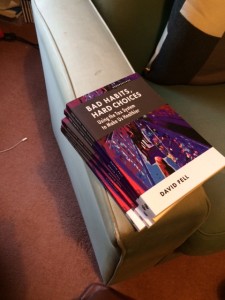It’s always exciting when a new ‘Perspective’ arrives at Enlightenment Towers, and the latest arrival is Digital transformation at scale by the Public Digital team. As many will know, they were the pioneers of the UK’s Government Digital Service, and the book draws on their experiences of achieving some significant changes in government practice, and citizens’ experience of contact with government.
It is not just about digital transformation in the public sector, however.The lessons apply to any established, large, complicated organisations whose processes have accreted in overlapping or inconsistent ways over time. There are plenty of those in the private sector. Maybe the executives at TSB should have read the book before embarking on their disastrous IT project.
The advance praise couldn’t be more stellar – Martha Lane Fox and Tim O’Reilly call it “essential reading” and “THE invaluable guide to bringing legacy institutions into the 21st century” respectively. There’s early coverage here and an excerpt here.
[amazon_link asins=’1907994785′ template=’ProductAd’ store=’enlighteconom-21′ marketplace=’UK’ link_id=’cae023f6-4ad0-11e8-b1a3-db25e984c9a5′]

